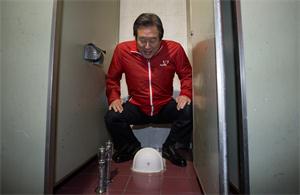Public jobs lose unrealistic appeal
(China Daily) Updated: 2015-12-01 07:44
 |
|
Chinese examinees walk towards an exam site to attend the 2015 China National Civil Service Examination in Nanjing city, East China's Jiangsu province, Nov 30, 2014. [Photo/IC] |
Working as a civil servant may still be a preferred choice for many job seekers, but the just-concluded national civil service exam has demonstrated an increasingly rational approach to what used to be widely considered an "iron rice bowl".
Since the country introduced the national exam for selecting government employees in 1994, the exam has become an annual event, and the following two decades saw an ever-growing number of candidates hoping to land one of what were widely perceived to be among the most desirable jobs.
However, the declining interest in government jobs in recent years reflects the fact that job hunters now hold a more realistic perception of what it means to be a civil servant, and the income and welfare they can expect in such a role.
The official disclosures of civil servants' incomes indicate that they receive only moderate salaries, something many remained skeptical of in the past given the huge assets found to be possessed by corrupt officials. Such revelations from the investigations into corruption also consolidated the public perception that civil servants enjoyed lucrative "gray" incomes.
But the relentless campaign launched by the authorities in the past years against extravagance and a series of measures adopted to regulate public servants' incomes have gradually brought the incomes and welfare of civil servants into the sunshine.
Also, the ever-increasing number of resignations of government employees, including some high-level ones, seems to indicate the weakening attraction of working as a public servant for the wrong reasons.
At a time when the country is encouraging innovations and mass business starting, the declining enthusiasm among job seekers for government jobs is a positive social sign that will cause more talented people to flow to other sectors, contributing to the diversified development and progress of the society. It will also mean that only those who truly want to serve the public choose to become civil servants.











